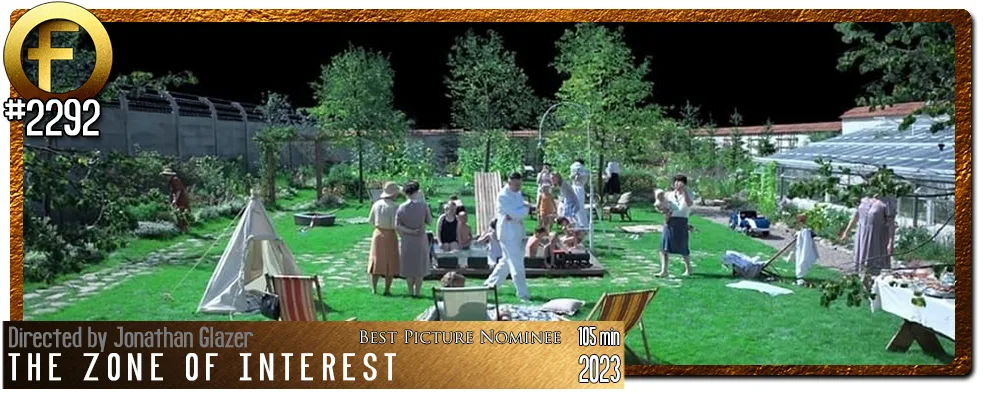Movie Review – Zone of Interest, The
Principal Cast : Christian Friedel, Sandra Huller, Johann Karthaus, Luis Noah Witte, Nele Ahrensmeier, Lilli Falk, Anastazja Drobiniak, Cecylia Pekala, Kalman Wilson, Medusa Knopf, Maximilian Beck, Stephanie Petrowitz, Martyna Poznanski, Zuzanna Kobiela, Marie Rosa Tietjen, Imogen Kogge, Ralph Herforth, Daniel Holzburg, Freya Kreutzkam.
Synopsis: Auschwitz commandant Rudolf Höss and his wife Hedwig strive to build a dream life for their family in a house and garden beside the camp.
********
The banality of absolute evil has rarely been given a canvas so chilling; Jonathan Glazer’s adaptation of Martin Amis 2014 book of the same name is devastating in its peek behind the Nazi curtain, offering platitudes and gossip aplenty as Rudolf Hoss, the commandant of the terrifying Auschwitz concentration camp, as well as his wife Hedwig, go about their daily life in the shadow of one of humanity’s most devastating atrocities. The Zone Of Interest was rightly nominated for Best Picture at the Academy Awards, and even won Best International Feature at the same ceremony, as well as winning an award for the Sound category, the latter of which forms the film’s centerpiece horror in its replication of what living adjacent to Auschwitz must have been like. Modern-day Nazi narratives have often resorted to graphic violence to engage their audiences, something filmmakers have tapped into in a detailed way since Spielberg’s Schindler’s List reset the bar, but Zone Of Interest isn’t interested in violence we see; rather, if focuses on the Hoss family and their home against the wall of Auschwitz, and what that allows us to hear.
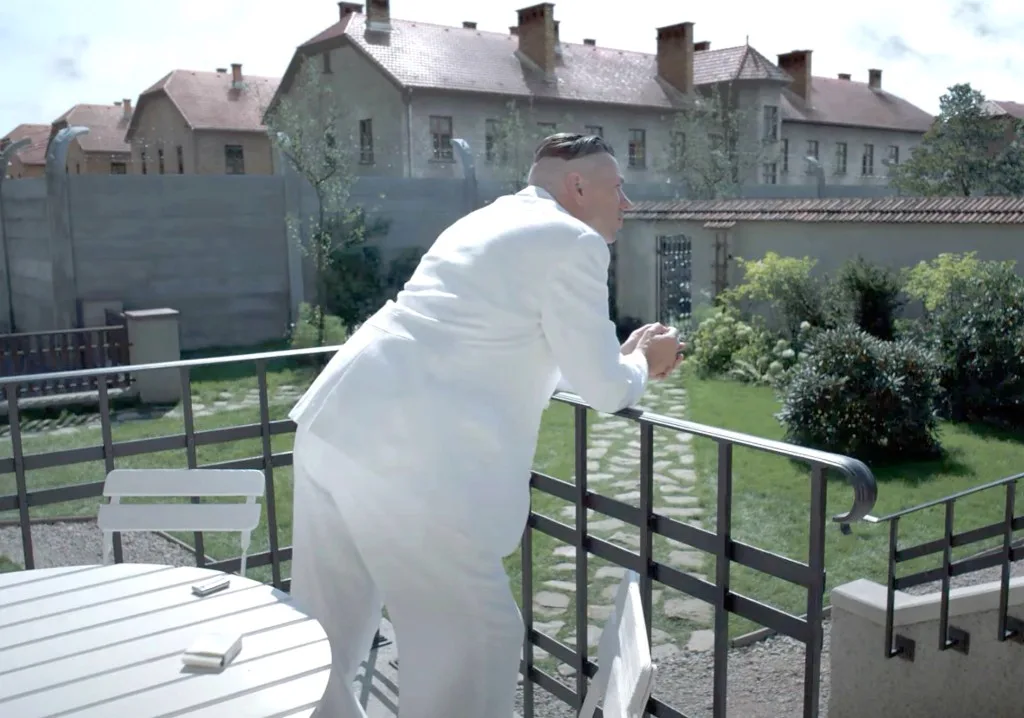
Rudolf Hoss (Christian Friedel) lives with his wife Hedwig (Sandra Huller) and his young family next to the Nazi Germany concentration camp Auschwitz, inside the annexed Polish territory during the Second World War. Hoss is good at his job, turning the camp into a model of order and effectiveness at slaughtering the prisoner population, so much so that he is even granted a promotion from his superiors. This brings conflict into the Hoss household, with Hedwig unwilling to leave their family home, one that comes with a pool, lush garden and access to camp slaves to perform menial tasks. Day by day the family live, breathe, play and work under the ominous ash cloud of human misery, as the camp’s incinerators work overtime to process the incoming prisoners aboard the continual, round-the-clock train deliveries.
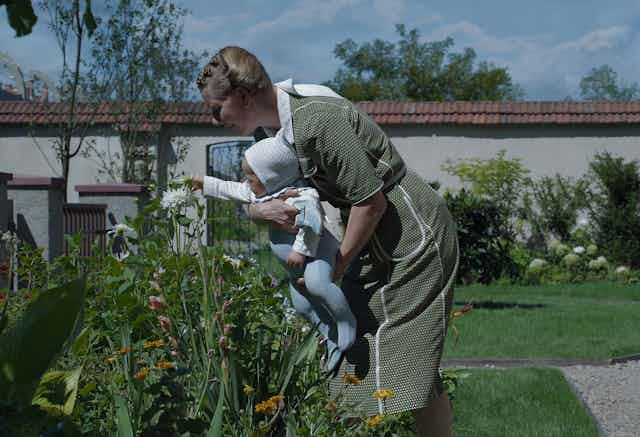
Is ghastly an analogy as it seems, the principal idea behind The Zone Of Interest seems to be having your home and workplace right on top of each other – like a baker living in the apartment above his shop. Rudolf Hoss and his family somehow had a house situated right up against one of the walls of Auschwitz (a fact I was unaware of until this film), which in hindsight is about the most ghoulish situation one can imagine but within the context of the work/play motif was probably fairly understandable. This fact, that a family including young children, can live within a stone’s throw from one of the worst places ever devised by the human mind, and not have them seem to be affected, is the most devastating part of this whole thing: imagine if Sweeney Todd’s kids lived in rooms behind the barber shop – that’s what The Zone Of Interest is all about. Against this quite blandly lived regimen sits the horrors of Nazi Germany, treated like a job but in fact one of the most horrifying acts committed against a people, and one given withering contrast thanks to the film’s sublime sound design.
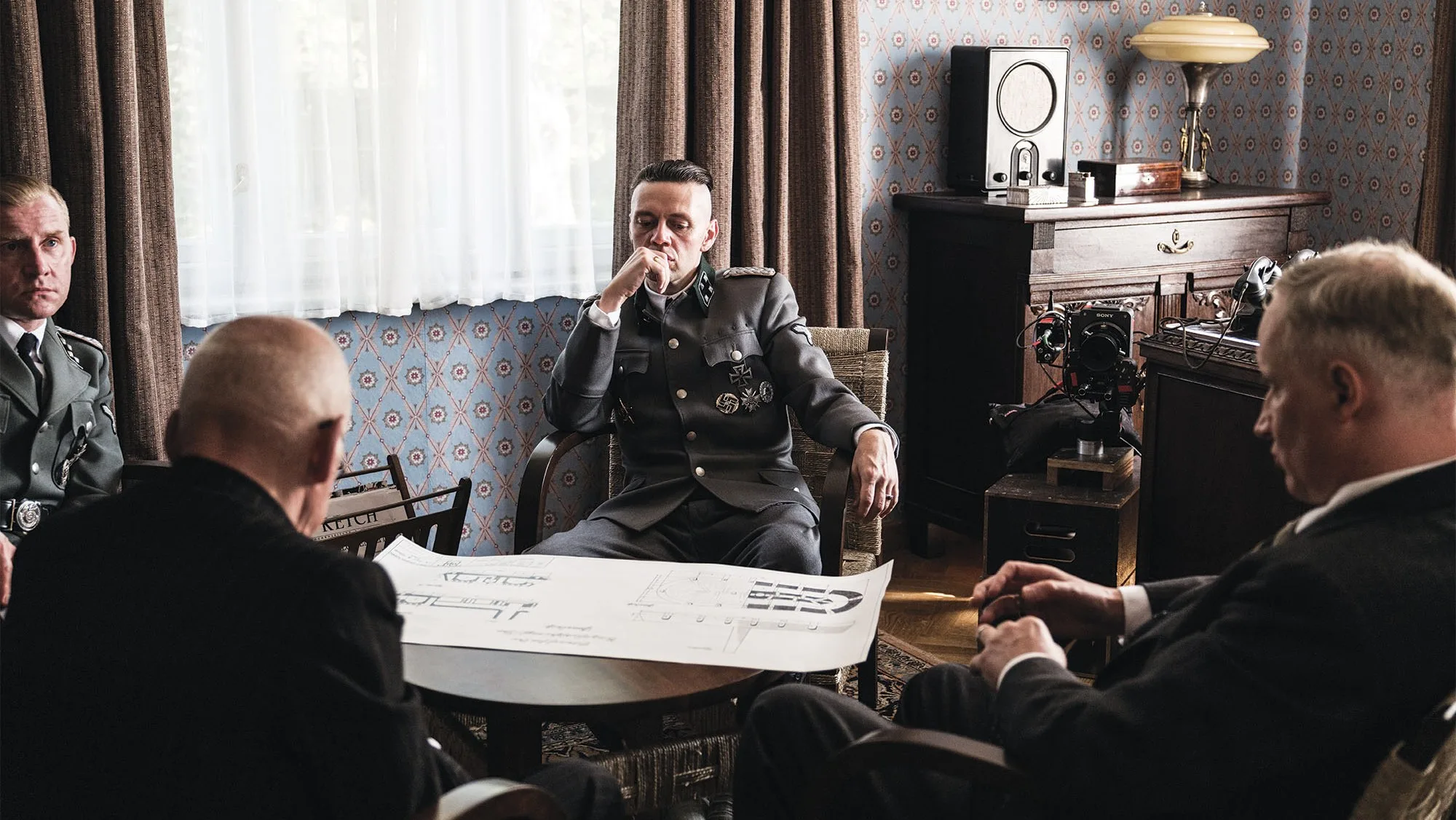
Rarely has a film’s sound mix brought up so much horror. Rudolf, Hedwig and their family laugh, chat and play against an ever-present aural onslaught of death – gunshots, screams, wails, train whistles and the low rumble of a 24-hr incinerator oven working to turn Jewish corpses into ash, it all pervades the film’s soundscape whereby you never, ever escape it. That Hedwig and her kids can play in the garden, swim in the pool, and chat to visiting grandmother (Imogen Kogge as Hedwig’s mother) without really noticing the camp wall right there, speaks to the indifference with which the Nazi’s treated their prisoners; you can understand it, at least, because director Jonathan Glazer has presented it simply as a place of work and convenience to that work, turning what is a landscape of terror into an island of familial contentment. Rudolf even entertains a meeting of Nazi engineers to discuss expanding the incinerator capacity of the camp like they’re talking about building a man-cave in the basement or putting down a concrete driveway; it’s so jarringly dispassionate to watch, and yet it feels real within the context of the time period. This, if nothing else, is the true horror of The Zone of Interest.
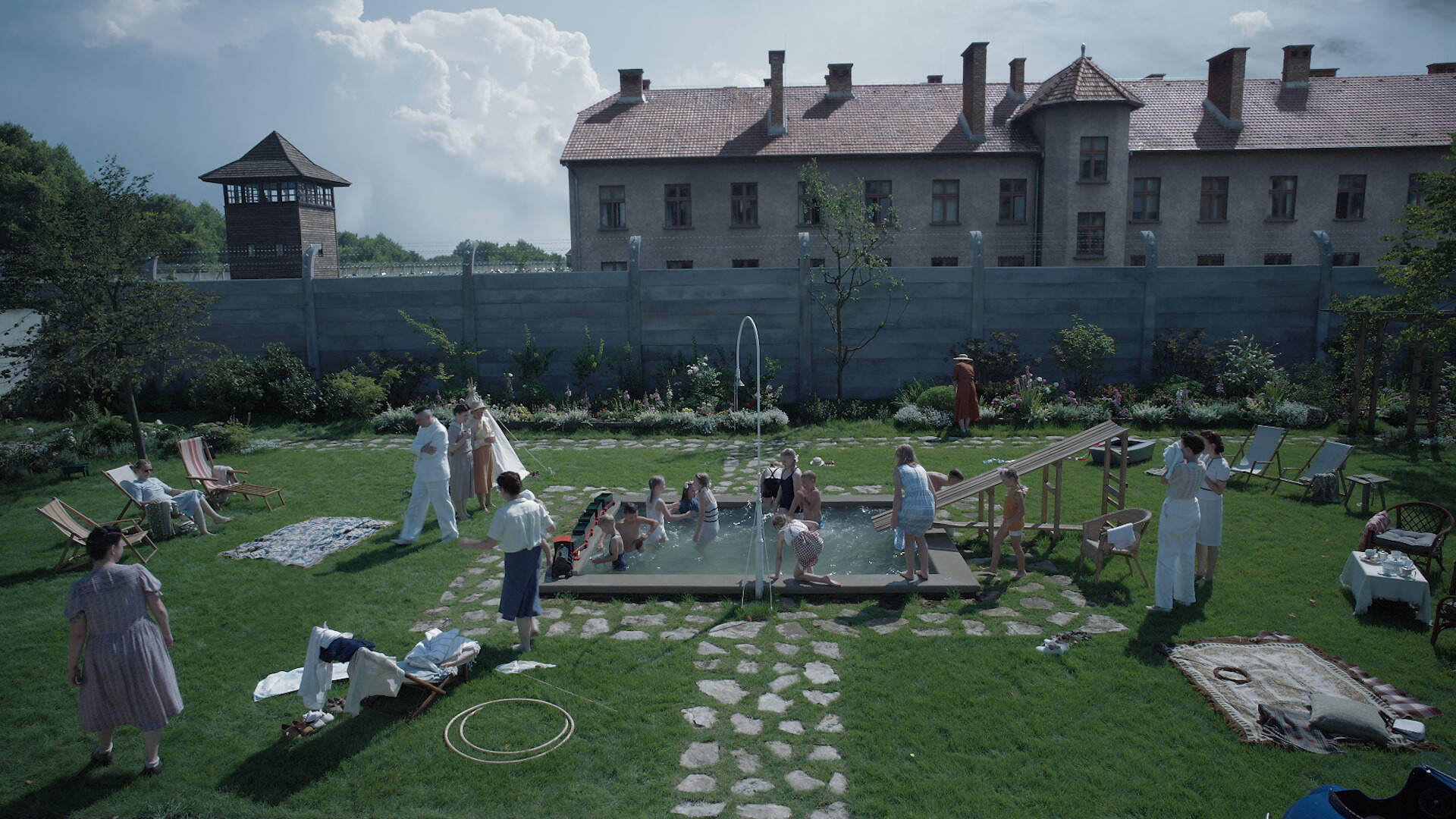
Filmed using hidden cameras in a fully enclosed replica of the Hoss home near Auschwitz, Glazer and his team give the film a real vérité, fly-on-the-wall feel, with the cast all acting through each scene without a cut, allowing the flow and ebb of just how human the Hoss’ were in the moment to contrast against that awful soundscape. You’ll wince as momentary screams, rounds of machine-gun fire and machinery clanking echo through the film, punctuating the everyday boredom of the Hoss family life with horror our minds know and understand, but never see. The cast all do solid work, particularly Christian Friedel and Sandra Huller as Rudolf and Hedwig Hoss. Friedel is particularly good in his performance as the brooks-no-fools Rudolf, a man of impeccable order and zealotry but for whom his pride in his achievements with the camp almost supersede his love of family. Huller, also nominated for her work in Anatomy Of A Fall (also in 2023), depicts Hedwig as a willing, loving wife who recognises her husband’s flaws and failings but overlooks them in favour to their children, and somehow managed to make the woman’s fearfulness at having to leave their camp-adjacent home a palpable reality for the viewer. Remarkable acting aside, both Huller and Friedel never turn their characters into arch Nazi villains, despite their inherently despicable actions. The casual dialogue ruminating on the Nazi Party’s demand for political violence, as well as “who might be in the camp next door” is chilling in its emotional vacancy, as if the characters have disconnected from the gravity of what their country is doing.
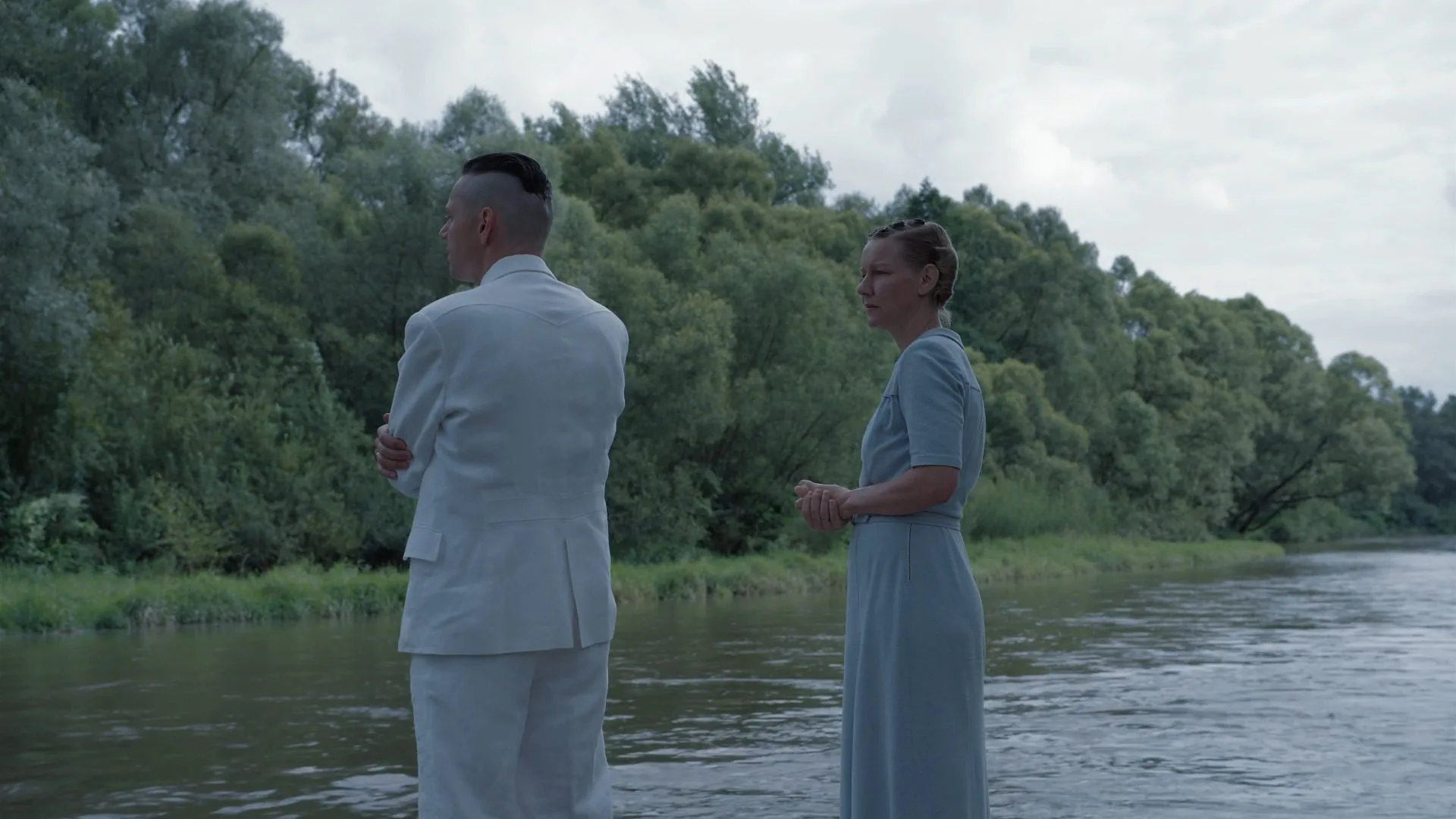
While it never depicts the horrors of the camp itself, other than the paralysing sound design through which we can all imagine what’s going on in there, The Zone of Interest is an astoundingly good anti-war film. It’s also quite prescient, given the nature of global conflicts in the mid 2020’s, that we should be afraid to dehumanize ourselves as we watch people being slaughtered on television and, in effect, turn a blind eye to it. A real gut-punch film that is as profoundly moving as it is tough to watch – make no mistake, listening to this film is among the hardest things I’ve ever done as a film fan – The Zone of Interest should be mandatory viewing for any serious student of history or scholar of the period, and, like 2022’s All Quiet On The Western Front before it, is supremely deserving of its Best International Feature Oscar. Brilliantly performed, handsomely mounted (it’s remarkable how spot-on a lot of the production design and visual effects are in this film) and horrifying in so many ways, The Zone Of Interest is highly recommended.

